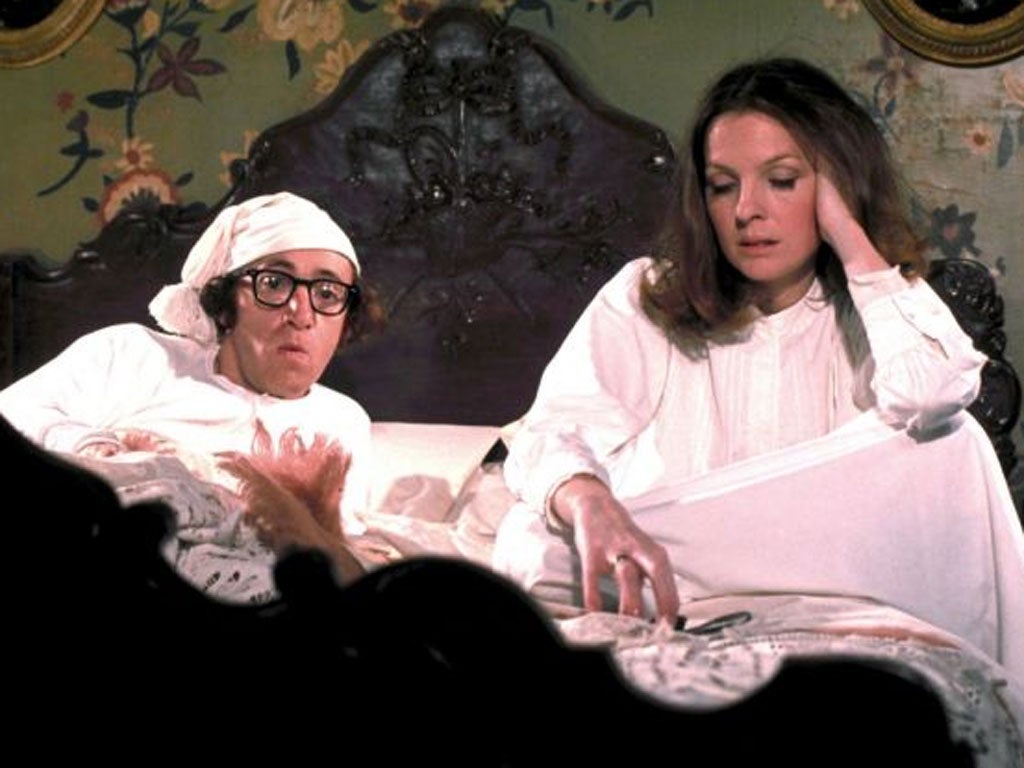Memoir: Unravelling lost pasts

Every living person should be forced to write an autobiography. They should have to go back and unravel and disclose all the stuff that was packed into their lives". So wrote Dorothy Hall in a journal that was posthumously passed on to her daughter, Diane Keaton.
Wise words or the floodgates to naval-gazing tedium? In the case of Keaton's autobiography, Then Again (Fourth Estate, £18.99) she proves her mother right, although Keaton comes at her life story sideways. The book is as much a memoir of her mother's life as her own. Dorothy's unwavering love, her unfulfilled ambition, her stridency, provides a context, and an explanation for Keaton's outlook and inner contradictions: the luminous actress who battled with insecurity over her appearance, suffered secretly from bulimia, and had love affairs with Warren Beatty and Al Pacino but speaks most affectionately of Woody Allen. Keaton's narrative tone is humble (a miracle, given decades of Hollywood stardust), and heartfelt without being heavy.
The psychology of another mother is unravelled in Jeanette Winterson's Why Be Happy When You Could be Normal? (Jonathan Cape, £14.99) Or two mothers, for there is the elusive biological one who gives baby Jeanette up for adoption (and who re-enters her life much later), and the abusive, adoptive mother, Mrs W.
Many will have first encountered the latter over 25 years ago in Winterson's debut novel, Oranges Are Not The Only Fruit, as the grim-faced Pentecostal Christian whose baffling acts of cruelty towards her daughter are no less shocking now (she locks her up in the coal-hole, burns her novels and leaves her shivering on the doorstep overnight). Winterson moves the story onto her depression, suicide attempt and craving for love in adult life. It is a startling summary of a damaged childhood, but also one of forgiveness.
Art Spiegelman's wondrous memoir of a memoir, aptly named MetaMAUS (Viking, £25) takes fatherhood as its theme. The illustrator reflects on his early life as an underground cartoonist and his Pulitzer-prize winning comic memoir, Maus, which depicted his father's Holocaust survival story (in animal form) in three critically-acclaimed volumes. This inventive coffee table book is a visual feast. There are preliminary sketches and previously unseen artworks of Maus as well as a transcript of interviews with his father, Vladek and a Q&A with Spiegelman in which he reveals Maus's genesis: "Actually, it all started with me trying to draw black folks." The cat-mouse metaphor of oppression came from the Nazi imagery of Jews as vermin, or "defenceless scurrying creatures".
Numerous memoirs take death as a starting point for interrogating the business of living. Francisco Goldman's Say Her Name (Grove Press, £14.99) is closely based on the death of his wife, Aura Estrada, who broke her neck while body-surfing, aged 30. Goldman has expressed his suspicion towards the supposed veracity that memoirs boast and prefers to call the book a novel. Frank is the bereaved husband, trawling through his memories of Aura. It is a fraught, desperate book, and also an incandescent love story with a tragic ending.
Joyce Carol Oates's A Widow's Story (Fourth Estate, £20) is a fevered account of her husband's death, told in riveting prose that sprints across the page. The memoir begins with the day her husband, Raymond Smith, the founding editor of Ontario Review, is admitted to hospital, where he dies of a secondary infection following pneumonia, bringing their 47-year marriage to an end. The book is a close, unrestrained study of grief. Thoughts of suicide stalk her and Oates is fractured from her former self as she begins this new, reduced life as "the widow", as if she were turned into a character from her own fiction.
Alongside the anguish begins the internal inquiry on how well she knew Ray, how well he knew her. He rarely read her fiction, she reveals, and she finds his only aborted novel, stopped short when he met and married her. Her existential quandaries on intimacy – can it ever be achieved or are two people only ever mutual mysteries to each other? - chime at times with Joan Didion's inquiry in her memoir of her daughter's death, Blue Nights (Fourth Estate, £14.99).
Sarah Manguso's The Two Kinds of Decay (Granta, £14.99) is an extraordinary story of critical illness which is profoundly life-affirming, for all its darkness. Manguso does more than merely chase her own ambulance in this slim, beautifully written autobiography about a rare autoimmune disease, diagnosed at the age of 21, that left her debilitated for nine years. Her illness reduces her spirit, yet simultaneously, it feeds an enormous hunger for living. Her life-story is a tale of desperation and terror but also one of wonder and joy as she emerges from the cold shadow of death, into glorious life.
Join our commenting forum
Join thought-provoking conversations, follow other Independent readers and see their replies
Comments
Bookmark popover
Removed from bookmarks